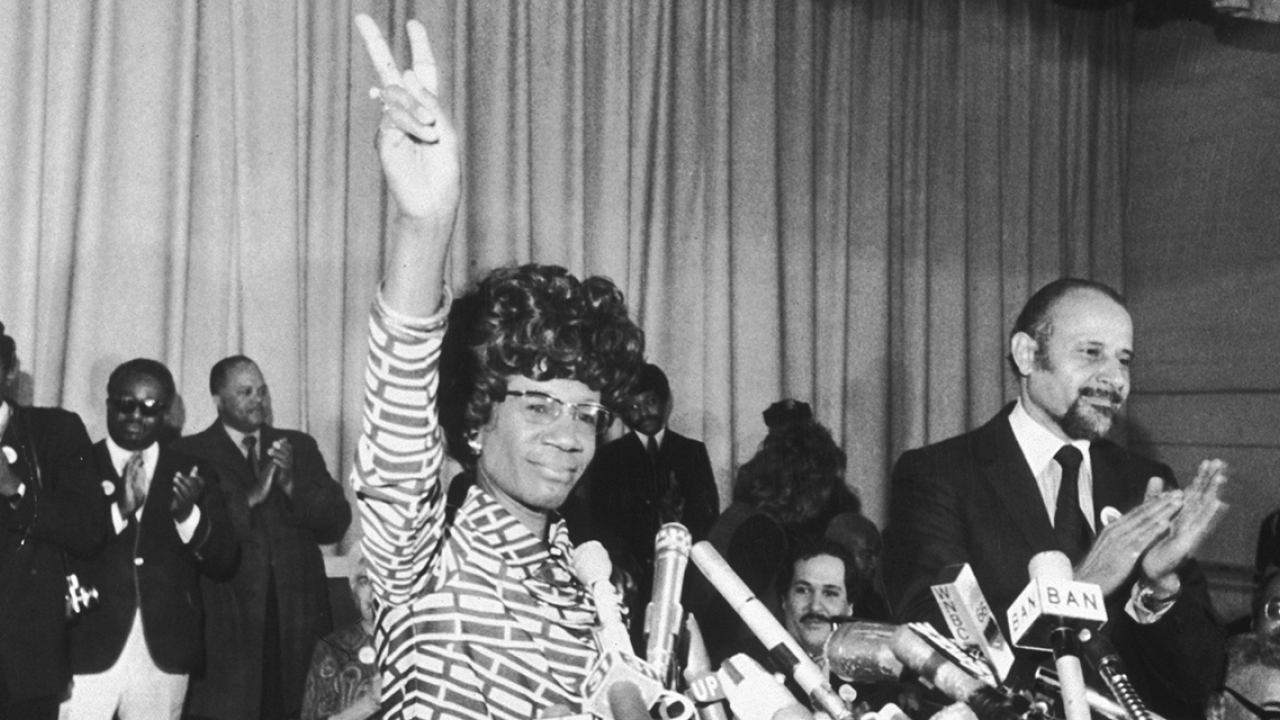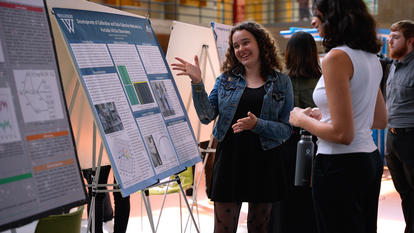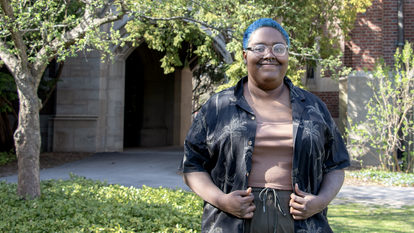Wellesley Faculty Describe the Legacy of Shirley Chisholm on the 46th Anniversary of Her Historic Decision to Run for President

Shirley Chisholm’s career in politics resonates in the United States today as it did when, as a Congressional representative from Brooklyn, she announced her historic run for the Democratic presidential nomination on September 26, 1971, becoming the first woman and first African American to do so.
Today, on the 46th anniversary of that announcement, two Wellesley faculty members reflect on Chisholm’s career as a trailblazer for Black people as well as for women across racial and political spectra.
Roxanne Euben, the Ralph Emerson and Alice Freeman Palmer Professor of Political Science, said Chisholm showed courage in stepping onto the national stage to run in a field crowded with white male candidates. (George McGovern was the party’s eventual nominee; he lost to Republican incumbent Richard Nixon.)
“The courage it took for Shirley Chisholm to declare a serious campaign for the office of president of the United States and the mettle she had to take it all the way to the Democratic National Convention despite relentless hostility are astonishing,” said Euben. “It’s a moment in history that must become widely known, invoked, and honored.”
Jennifer Chudy, assistant professor of political science, pointed out the pioneering nature of Chisholm’s candidacy. “First, she was Black; second, she was a woman; and third, she was a Black woman,” said Chudy. “She paved the way for future politicians in all of these categories, including Black politicians like Obama, women politicians like Hillary Clinton ’69, and especially Black women politicians, like Carol Moseley Braun, who ran for president in 2003. That said, with the exception of Obama, neither Clinton nor Moseley Braun was able to win the presidency, suggesting the work left to be done with respect to gender attitudes and electoral politics.”
Born in the Bedford-Stuyvesant section of Brooklyn, Chisholm was the oldest of four daughters of immigrant parents. She graduated from Brooklyn College, taught in a nursery school, and later earned her master’s degree at Columbia University in early childhood education.
She was elected to the New York State Legislature in 1964, and in 1968 became the first Black woman elected to Congress, representing Brooklyn’s 12th Congressional District. As a representative, she advocated for the needs of minorities, women, and children; supported employment and education programs; and fought for the end of the military draft and reduced military spending.
In her run for the presidential nomination, she was cognizant of how gender and race would affect her chances, said Chudy. “From the start of her campaign, Chisholm was explicit about connecting these parts of her background,” she said. “In doing so, she drew attention to the ways in which a candidate’s identity shaped voter decision-making, very much changing the nature of how we think about candidates. In 1972, to even talk about gender and race with respect to presidential politics marked progress, though it also brought many problems for her candidacy as well.”
In a candid 1982 interview with the Associated Press, Chisholm said, “I’ve always met more discrimination being a woman than being Black. When I ran for the Congress, when I ran for the president, I met more discrimination as a woman than for being Black. Men are men.”
Euben said Chisholm, who served seven terms in Congress, deserves to be remembered as a prominent figure in the history of this country. “But in truth, she can only be an inspiration to those who know of her,” she said. “So I imagine she’s a remarkable inspiration for Black Americans, for Black women of all ages, and for disempowered Americans of all kinds, not only because of the many barriers she breached, but also because she was able to accomplish her many ‘firsts’ while fighting constantly for social justice and racial and gender equality, and against poverty and the Vietnam War.”
Paula Johnson, president of Wellesley College, said Chisholm was a role model for her when she was growing up in New York. “Shirley Chisholm was my U.S. Congresswoman, and my hero,” said President Johnson. “At the crossroads of the civil rights and women’s movements in the 1970s, she was a force of nature. Chisholm was a true original, unafraid, and, as she liked to say, ‘unbought and unbossed.’ I hope her story inspires this generation as much as she did mine.”



